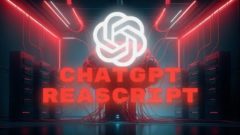Note: this video contains a lot of Tim’s personal opinions, so take them at face value. We are not making any scientific claims here.
Geoffrey Hinton, one of the pioneers in artificial intelligence and a driving force behind the development of neural networks, has recently left his position at Google. This decision has sparked widespread discussions on the potential dangers of AI and the role of tech giants in the field. In this essay, we will analyze Hinton’s concerns, the AI community’s stance on these potential dangers, and the possible implications of AI advancements for society.
Hinton’s departure from Google came as a surprise to many in the AI community. According to Hinton, he wanted to freely discuss the risks associated with AI without considering how his statements might impact Google. His concerns revolve around three main aspects:
1. Loss of truth: Hinton fears that AI-generated fake information, videos, and images could make it increasingly difficult for people to discern what is true and what is not. Tim thinks that this is mainly a platform problem, not a chatbot problem.
2. Job market: Hinton is concerned that AI technologies could eventually replace human workers in various fields, leading to significant job losses.
3. Superintelligence: Hinton is worried about the future of AI as it becomes more intelligent than humans, raising concerns about AI systems generating and running their own code and the development of autonomous weapons.
The AI community is divided on the potential dangers posed by AI technologies. Some experts believe that the risks are real and imminent, while others think that the concerns are exaggerated and based on hypothetical scenarios. However, there is a general consensus that the issue is nuanced, and a cautious approach to AI development is necessary.
Despite the potential dangers, AI has the potential to revolutionize industries, improve lives, and solve some of the world’s most pressing problems. The benefits of AI far outweigh the risks, and responsible AI development can mitigate potential dangers. However, the rapid pace of AI advancements could pose challenges in terms of adaptation and regulation.
While the mass generation of misinformation is undoubtedly a concern, it is essential to recognize that mass generation does not necessarily entail mass distribution. Social media platforms like Facebook and Twitter already have systems in place to combat misinformation. As AI-generated content becomes more widespread, it is crucial to foster a culture of digital literacy to help people discern the veracity of information generated by AI models.
AI’s impact on the job market is not all doom and gloom. While it is true that AI technologies might replace some human workers, they also have the potential to create a vast number of new jobs, particularly in supervising and testing AI systems. As AI models become more complex and their failure modes more challenging to identify, humans will play a crucial role in ensuring that these systems work as intended.
The concept of superintelligence raises valid concerns about AI systems becoming increasingly intelligent-seeming. However, it is important to note that machine intelligence will always need to be compatible with human intelligence. This means that even if AI systems become indistinguishable in their output from human thought, humans will still be required to supervise and test these systems.
Geoffrey Hinton’s departure from Google has brought attention to the potential dangers of AI and the role of tech giants in the field. While Hinton’s concerns are valid to some extent, there is no consensus on these risks or the best approach to address them. It is crucial for researchers, developers, and policymakers to engage in open and honest discussions about the potential consequences of AI technology. A culture of responsibility, accountability, and transparency should be fostered to ensure that AI is developed in a way that benefits society while minimizing potential harms.
00:00:00 – Geoff Hinton’s departure from Google and its implications
00:01:45 – The debate on potential dangers of AI
00:02:58 – The rise of misinformation and AI’s role
00:08:17 – Bias in models
00:09:11 – Connor Leahy on Hinton
00:10:35 – AI and its impact on the job market
00:12:47 – The difference between AI systems and traditional software systems (Connor Leahy)
00:13:44 – Superintelligence and its potential risks
00:15:35 – Conflating knowledge and intelligence in AI
00:16:42 – Cautiously optimistic or deeply concerned about AI’s future?





